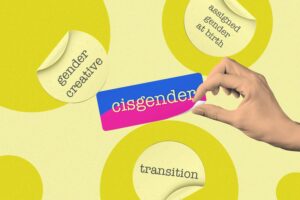LGBTQ family therapy and counseling play a vital role in supporting individuals and families within the LGBTQ community. In a society that is becoming increasingly diverse and accepting, it is essential to provide mental health services tailored to the unique needs and challenges faced by LGBTQ families. This article serves as a comprehensive guide, discussing the significance of LGBTQ family therapy, how to find LGBTQ-friendly therapists, the benefits of therapy, various therapeutic techniques, cost considerations, and frequently asked questions.
Contents
Understanding LGBTQ Family Dynamics

LGBTQ family dynamics can vary greatly, just like any other family structure. However, certain aspects may be more commonly experienced or unique to LGBTQ families. Here are some key points to understand about LGBTQ family dynamics:
- Diverse family structures: LGBTQ families encompass a wide range of structures. They can include same-sex couples, single LGBTQ parents, families formed through adoption or fostering, families with transgender parents or children, and more. These diverse family structures may face different challenges and have unique experiences.
- Building families: LGBTQ individuals and couples may choose different paths to create their families. This can involve assisted reproductive technologies such as in vitro fertilization (IVF), sperm or egg donation, surrogacy, or adoption. LGBTQ families often face legal and societal challenges when navigating these processes, as laws and attitudes towards LGBTQ parenting can vary across jurisdictions.
- Acceptance and support: Acceptance and support from extended family members, friends, and the community are crucial for LGBTQ families. They may encounter prejudice, discrimination, or rejection from some individuals or social institutions. However, many LGBTQ families find strong support networks within their communities and advocate for acceptance and equality.
Challenges Faced by LGBTQ Families
LGBTQ families can face a range of challenges that are often unique to their experiences. While these challenges can vary depending on factors such as location, cultural context, and individual circumstances, here are some common issues that LGBTQ families may encounter:
- Legal and institutional barriers: LGBTQ families may face legal and institutional barriers that affect their rights and recognition. These can include limited or no legal recognition of same-sex relationships, restricted adoption or foster care options, and a lack of legal protections for LGBTQ parents and their children. These barriers can lead to difficulties in areas such as healthcare, parental rights, inheritance, and access to social benefits.
- Discrimination and prejudice: LGBTQ families may experience discrimination and prejudice in various forms, ranging from overt acts of hostility to more subtle forms of bias. This can include exclusion or hostility from extended family members, discrimination in housing, employment, or education, and negative attitudes from individuals or communities.
- Lack of social support: LGBTQ families may face challenges in finding supportive social networks. Some families experience rejection from relatives or friends due to their sexual orientation or gender identity. Limited representation and understanding of LGBTQ families in mainstream media and society can contribute to feelings of isolation.
- Parental rights and custody issues: LGBTQ parents may encounter unique legal challenges related to custody, adoption, or parental rights. In some cases, legal systems may be biased against LGBTQ parents, leading to custody battles, legal obstacles when traveling with their children, or difficulties in making medical and educational decisions.
- Bullying and harassment: LGBTQ children or children with LGBTQ parents can face increased risks of bullying, harassment, or discrimination at school or in their communities. This can have negative impacts on their well-being, mental health, and educational experiences.
Importance of LGBTQ Family Therapy

LGBTQ family therapy plays a crucial role in supporting and strengthening the well-being of LGBTQ individuals and their families. Here are some key reasons why LGBTQ family therapy is important:
- Affirming and inclusive environment: LGBTQ family therapy provides a safe and affirming space where families can openly discuss and explore the unique challenges and dynamics they face. Therapists who specialize in LGBTQ issues understand the nuances of sexual orientation, gender identity, and LGBTQ family dynamics, ensuring that all family members feel validated and understood.
- Navigating family acceptance: Many LGBTQ individuals experience challenges related to family acceptance and support. LGBTQ family therapy can help facilitate open communication, bridge gaps in understanding, and address any conflicts or barriers to acceptance within the family unit. The therapy process can support families in embracing their LGBTQ family members and fostering a more inclusive and supportive environment.
- Building healthy communication: LGBTQ family therapy can improve communication patterns within the family. It provides a space for family members to express their thoughts, feelings, and concerns constructively. Therapists can help families develop effective communication skills, address misunderstandings, and foster empathy and understanding among family members.
- Coping with stigma and discrimination: LGBTQ individuals and families may face external stigma and discrimination, which can have a significant impact on their mental health and well-being. LGBTQ family therapy can help family members cope with these challenges, develop resilience, and support each other in navigating societal biases and prejudices.
- Supporting LGBTQ youth: LGBTQ youth often experience unique challenges as they navigate their identities, come out to their families, and face potential discrimination or bullying. LGBTQ family therapy can provide a supportive space for parents to understand and affirm their child’s identity, improve parent-child relationships, and help LGBTQ youth thrive in their personal development.
Finding LGBTQ-Friendly Family Therapists
Finding LGBTQ-friendly family therapists requires specific considerations to ensure a supportive and affirming environment. Here are some steps you can take to find LGBTQ-friendly family therapists:
- Seek recommendations: Reach out to LGBTQ organizations, support groups, or community centers in your area. They may have resources or referrals for LGBTQ-friendly therapists who specialize in family therapy. You can also ask friends, family, or other LGBTQ individuals for recommendations based on their personal experiences.
- Online directories and databases: Utilize online directories and databases that specialize in LGBTQ-friendly healthcare providers.
- LGBTQ organizations and mental health resources: Contact LGBTQ organizations or LGBTQ-specific mental health resources in your area. These organizations often have a list of recommended therapists who are knowledgeable about LGBTQ issues and provide affirming care. They can also offer guidance and support in finding the right therapist for your needs.
- Research therapist profiles: When exploring potential therapists, review their professional profiles, websites, or online bios. Look for language and information that indicates their experience and training in LGBTQ issues, as well as their commitment to providing inclusive and affirming care for LGBTQ individuals and families.
LGBTQ Family Therapy Techniques and Approaches
LGBTQ family therapy utilizes various techniques and approaches that are tailored to the unique needs and dynamics of LGBTQ families. Here are some commonly used techniques and approaches in LGBTQ family therapy:
- Affirmative therapy: Affirmative therapy is a client-centered approach that recognizes and validates the experiences and identities of LGBTQ individuals and families. It focuses on creating a safe and non-judgmental space where all family members can explore their feelings, experiences, and challenges related to their sexual orientation, gender identity, and family dynamics.
- Family systems therapy: Family systems therapy views the family as a complex system with interconnected parts. It examines the patterns of communication, roles, and dynamics within the family unit. In LGBTQ family therapy, this approach can help identify and address any unhealthy or unhelpful patterns specific to LGBTQ family dynamics.
- Narrative therapy: Narrative therapy explores the stories and narratives that individuals and families construct about their identities, relationships, and experiences. In LGBTQ family therapy, this approach can help family members explore and challenge societal norms, stereotypes, and internalized biases, allowing them to shape more positive and authentic narratives.
- Communication skills training: Effective communication is essential in any family, including LGBTQ families. Therapists can help family members develop and improve their communication skills, such as active listening, assertive expression, and conflict resolution techniques. This can enhance understanding, empathy, and support within the family.
Cost and Accessibility of LGBTQ Family Counseling

The cost and accessibility of LGBTQ family counseling can vary depending on several factors, including geographical location, insurance coverage, and available resources. Here are some considerations:
- Insurance coverage: Check with your health insurance provider to determine if they cover mental health services, including family counseling. Some insurance plans may cover a portion or all of the costs, while others may have specific providers or networks that offer LGBTQ-inclusive services. It’s important to review the details of your insurance plan and contact the provider directly to inquire about coverage for LGBTQ family therapy.
- Sliding scale or reduced-fee options: Some therapists and counseling centers offer sliding scale fees, which are based on income or ability to pay. This can make therapy more affordable and accessible for individuals and families with limited financial resources. Inquire about sliding scale or reduced-fee options when contacting potential therapists or community mental health centers.
- LGBTQ organizations and community resources: LGBTQ organizations and community centers often provide mental health services or can provide referrals to LGBTQ-friendly therapists who offer counseling services at reduced or no cost. These organizations may also host support groups or counseling programs specifically for LGBTQ individuals and families. Reach out to local LGBTQ organizations or search online directories for resources in your area.
- Government assistance programs: Depending on your location, there may be government-funded programs or initiatives that offer low-cost or free mental health services. These programs may be specific to LGBTQ individuals or families or maybe more broadly available to the community. Research local mental health services or contact government health agencies to inquire about available programs.
Conclusion
LGBTQ family therapy and counseling serve as invaluable resources for individuals and families within the LGBTQ community. By addressing the unique challenges faced by LGBTQ families and promoting acceptance and understanding, therapy can foster healthier relationships and improved mental well-being. By utilizing the information provided in this comprehensive guide, individuals can access the support and guidance they need to navigate their journeys successfully.
Life may sometimes be challenging for people from the LGBTQ community, but Online LGBTQ Counseling can help. Get experienced LGBTQ therapists at PrideMantra: Book a trial LGBTQ therapy session.


